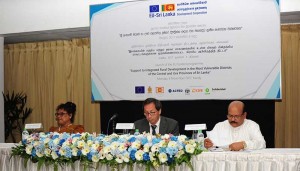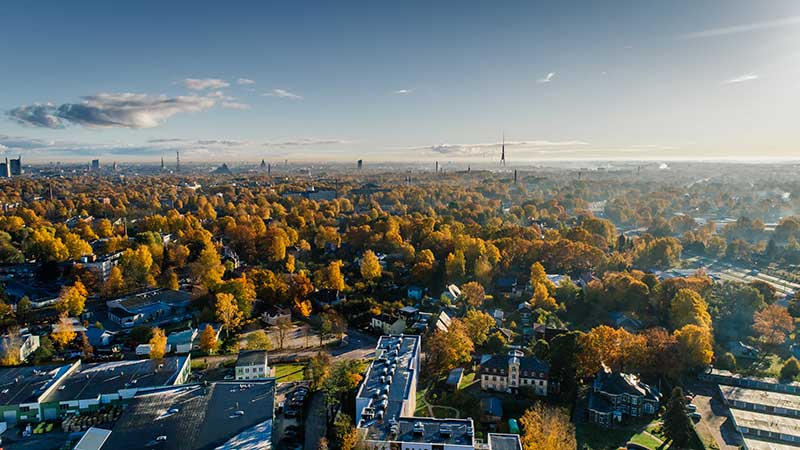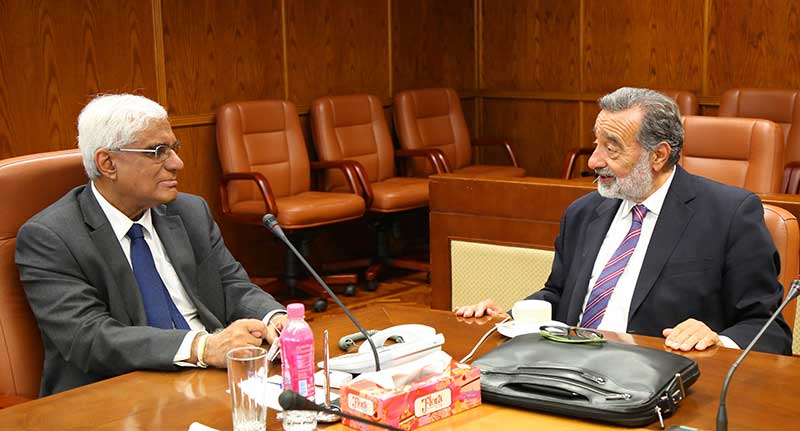
The European Union launches programme to reduce poverty in Uva and Central Provinces
The European Union launched one of the largest programmes of development support in the country. The European Union will contribute Rs. 5.4 billion in to reduce poverty in the provinces by improving the income of poor people living in rural areas and helping to ensure that they have enough food to eat, even in times of hardship.
Speaking at the launch alongside the Governors, Chief Ministers and Chief Secretaries of Uva and
Central Provinces, Tung-Lai Margue, the Ambassador of the Delegation of the European Union to
Sri Lanka and the Maldives, said “This programme has been designed with the needs of the poorest in mind. From better water and sanitation to increasing technical knowledge and empowering women, people in these rural areas should see a marked improvement in their lives. We are very pleased to partner with both the Government of Sri Lanka and a number of civil society organisations in this initiative, partnerships that will ensure that the assistance provided makes a lasting difference in people’s lives.”
This grant, which is a part of the EU’s wider programme of support to rural development in Sri Lanka will benefit rural communities in the Monaragala, Badulla, Nuwara Eliya and Matale districts. The programme is expected to be operational for five years (2017-2022). The programme will be implemented by five partner organsiations. Specifically,
CARE will assist in establishing and strengthening Small and Medium Enterprises (SMEs) that are led by women and youth from rural and estate communities. In addition, they will aim to increase their participation in decision making around employment creation, business development and economic growth of the rural and estate sectors.
ACTED will aim to create jobs and increase income levels by building capacity and bringing value addition to local farming SMEs, specifically targeting women-led businesses in dairy, vegetables, floriculture, fruits and spice value chains. Additionally, the project will promote a business enabling environment for SMEs, by strengthening local business support services and engaging local governance actors in integrated, climate-resilient and inclusive coordination mechanisms and economic development planning.
Oxfam’s work will entail improving income and providing work opportunities. In addition, emphasis will be put on integrating women in economic activities. Activities include increasing veterinary services and dairy markets, improving potato seeds, cinnamon and cocoa production. The project will train civil society organisations and local government authorities to better engage in policy discussions on how to support entrepreneurs.
Adventist Development and Relief Agency and Stichting Solidaridad, will work with the rural and estate communities to increase access to water and sanitation facilities, improve personal hygiene and sanitation practices, and strengthen public authorities.



